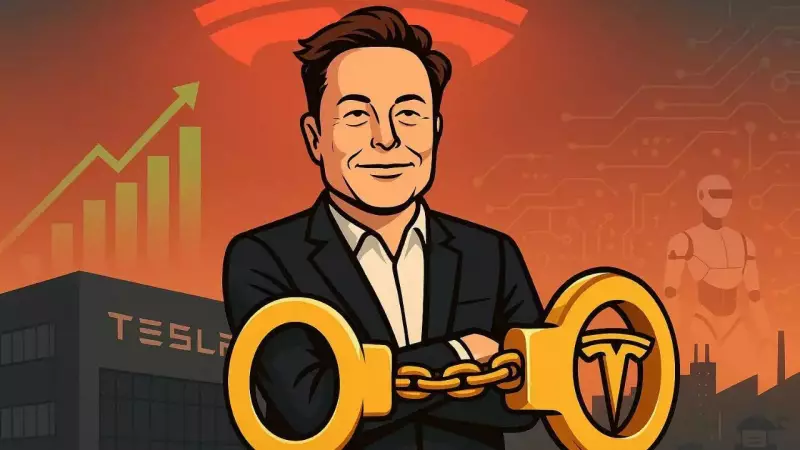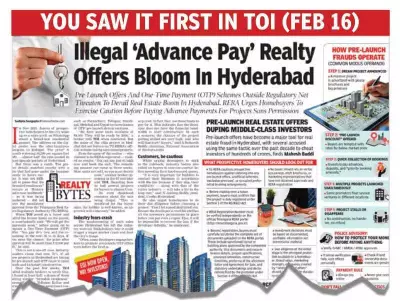
Elon Musk's Historic $1 Trillion Compensation Package Gets Green Light
Tesla shareholders have made a monumental decision that could reshape the future of the electric vehicle giant. In a recent vote, investors approved what is being called the largest corporate compensation package in history - a staggering $1 trillion pay deal for CEO Elon Musk, who already holds the title of world's richest person.
This unprecedented agreement represents corporate loyalty taken to an entirely new level. Think of it as golden handcuffs designed specifically for a billionaire, combining financial incentives with interplanetary ambitions that have become synonymous with Musk's vision for Tesla.
The Mechanics of Musk's Mega Deal
So how exactly does one incentivize someone who already has everything? The answer lies in Tesla's stock value. Unlike traditional compensation packages that include cash or salary, Musk's reward comes entirely in the form of Tesla stock slices worth up to $1 trillion.
The package is structured around 12 separate tranches that unlock progressively. Each portion becomes available when Tesla's market valuation increases by another $500 billion and the company hits specific operational milestones. These targets include delivering Tesla's 20 millionth vehicle and establishing the company as the world's leading AI-robotics enterprise.
Here's the breakdown of how the compensation works:
- Musk receives approximately 1% additional ownership in Tesla with each $500 billion valuation increase
- The full package matures when Tesla reaches an $8.5 trillion market capitalization
- At that point, Musk would control what could become the most valuable company in history
Why Tesla Board Pushed for This Package
Tesla's leadership presented a clear argument to shareholders: the company's future success is inextricably linked to Musk's continued involvement. Board members described this moment as a critical inflection point in Tesla's evolution from an electric car manufacturer to a comprehensive AI and robotics powerhouse.
Chair Robyn Denholm reportedly spent weeks campaigning to convince investors that this wasn't corporate extravagance but necessary insurance. The underlying message was unmistakable - if Musk departs, Tesla's ambitious transformation could falter.
As one finance professor summarized the situation: "Musk's argument is simple — I built this, and without me, it fails." The board essentially bet the company's future on retaining its visionary leader.
What Elon Musk Gains Beyond Wealth
While the financial numbers are astronomical, Musk claims his motivation isn't primarily about money. He has publicly stated that he seeks approximately 25% voting power within Tesla to execute his long-term vision without interference from other shareholders.
This level of control would provide Musk with the autonomy he desires to steer Tesla toward his ambitious goals, which include developing humanoid robots, creating autonomous vehicle fleets, and achieving what he calls "sustainable abundance."
The compensation package also serves as protection against Musk diverting his attention to his other ventures, particularly xAI, his artificial intelligence startup. He has hinted that without sufficient influence at Tesla, he might focus his energies elsewhere, making this trillion-dollar arrangement essentially a "please stay" bonus of historic proportions.
Controversy and Legal Precedent
This isn't Musk's first record-breaking compensation package from Tesla. His previous arrangement, valued at a mere $56 billion, was voided by a Delaware court that ruled it was "unfair" to shareholders. The new package is nearly ten times larger, raising eyebrows among corporate governance experts.
Critics have described the arrangement as a "heads I win, tails you lose" scenario because Tesla's board retains technical flexibility to award Musk shares even if he misses some performance targets. The consumer advocacy group Public Citizen called it "a new frontier of absurd CEO pay" that could easily feature in an episode of Black Mirror focused on capitalism.
Interestingly, some analysts have pointed out that Musk's political activities and controversial social media presence may have cost Tesla over 1 million vehicle sales. Despite this, shareholders apparently decided that retaining their charismatic leader was worth the occasional controversy.
The Bigger Picture: Founder-Led Companies at a Crossroads
This compensation package transcends typical corporate governance discussions. It represents a fascinating case study of what happens when a company's identity becomes fused with its founder's personality and ambitions.
Tesla's astronomical valuation now depends heavily on whether Musk can deliver on his promises of technological revolution over the next decade. The company's worth is effectively betting on the realization of Musk's vision for humanoid robots, autonomous transportation networks, and other innovations that he regularly previews on social media.
If Musk succeeds in transforming Tesla into the AI and robotics juggernaut he envisions, he'll not only collect his historic compensation but will own the most valuable company ever created. If the ambitious targets aren't met, he'll still depart with what would be the most expensive consolation prize in corporate history.
The Tesla shareholder vote represents a watershed moment in corporate leadership compensation and raises fundamental questions about the value of visionary founders in driving innovation versus the risks of concentrating too much power and reward in a single individual.






